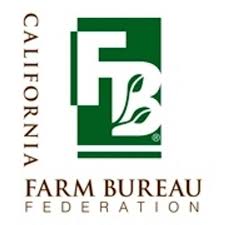 In California, a gallon of diesel, taxes included, retailed for $3.967 as of April 15, according to the U.S. Energy Information Administration. That's up from $3.778 a month earlier, and also up 18 cents a gallon from mid-April 2018.
In California, a gallon of diesel, taxes included, retailed for $3.967 as of April 15, according to the U.S. Energy Information Administration. That's up from $3.778 a month earlier, and also up 18 cents a gallon from mid-April 2018.
"What that means for California agriculture, it's going to hurt our bottom line—whether it's transporting from field to processor or whether it's just being able to run our farm equipment," said Robert Spiegel, policy specialist on transportation issues for the California Farm Bureau Federation.
A 20-cent boost in the excise tax for on-road diesel—a part of Senate Bill 1, the transportation bill enacted in 2017—isn't helping, he noted. The tax now stands at 36 cents per gallon.
Chris Torres of Princeton, who farms rice and runs a trucking company, said both sides of his business will take a hit.
"On the farm side, here we've got our budget set for X dollars of fuel being spent, and now we're (spending) more money," Torres said. "It's something we've got to come out of our back pocket on. It's extremely frustrating."
Whether a fuel surcharge might be applied to a delivery depends on the contract, he added.
"If it's a locked-in delivery price, you won't see it," Torres said. "But if it's not a locked-in delivery price, and there's a way to bump up the fuel surcharge to compensate the person who's utilizing the fuel, they're going to pass it on somehow."
Tom Stewart also is caught on both sides, being a hay grower, a cattle rancher and a livestock hauler based in Tulelake.
"On livestock hauling, the rates are pretty much directly correlated with the fuel prices," Stewart said, noting that it's too early in the season for much cattle hauling. "I'm sure if the price stays up this way for the next few weeks, or goes higher, then yeah, the rates will start reflecting that."
While Stewart only buys as needed, he said he has neighbors who will buy 10,000 to 20,000 gallons at a time.
"During the winter, they'll sit there and kind of watch the market, and top everything off when they think it's at its low point," he said.
The price increase didn't surprise Paul Wenger, who farms almonds and walnuts in Modesto.
"We've come to know that when it comes to Easter time and then the summer recess for school, demand is certainly going up but people aren't going to change their driving habits," Wenger said.
Depressed commodity prices related to ongoing trade disputes aren't helping, he noted.
"You never want to see costs go up, but this is one of those that we're probably a little bit more used to, because it's more of a cyclical or seasonal thing," he said.
Wenger, a former CFBF president, said he's been limiting his diesel use, with the price being a factor.
"We just aren't putting tractors in the field like we used to," he said. As for tillage, "We're doing all we can to minimize the number of passes through the field, both for savings of diesel but also dust in the air for mites and other things."
Wenger said he doesn't have enough long-term storage for diesel but does have a fuel supplier who keeps him informed of major price swings, in case he wants to buy early or wait a while.
"That's where having a good rapport with your fuel supplier really comes in handy," he said. "They know what your purchasing needs are, based on history."
Torres noted that higher fuel prices can wallop farmers off the clock, too.
"We live in the West," Torres said. "People like myself that live in the middle of the valley, we have to travel 30 minutes to go to a store. Traveling, sitting behind the wheel of our vehicles, is a way of life. It's a cost that we can't do anything about."
Torres and Wenger said other petroleum-based products farmers rely on, such as fertilizer and plastic pipes for irrigation, could soon be affected if prices stay up.
Wenger recommended that people who can use flex fuel, also called E85 for its high ethanol content, should consider doing so.
"There is a huge price differential between regular gas and E85," Wenger said. "If you can put the ethanol in your tank, not only are you supporting other farmers in the midsection of this country, but you're saving yourself some money."
(Kevin Hecteman is an assistant editor of Ag Alert. He may be contacted at khecteman@cfbf.com.)
Reprinted with permission: California Farm Bureau Federation








